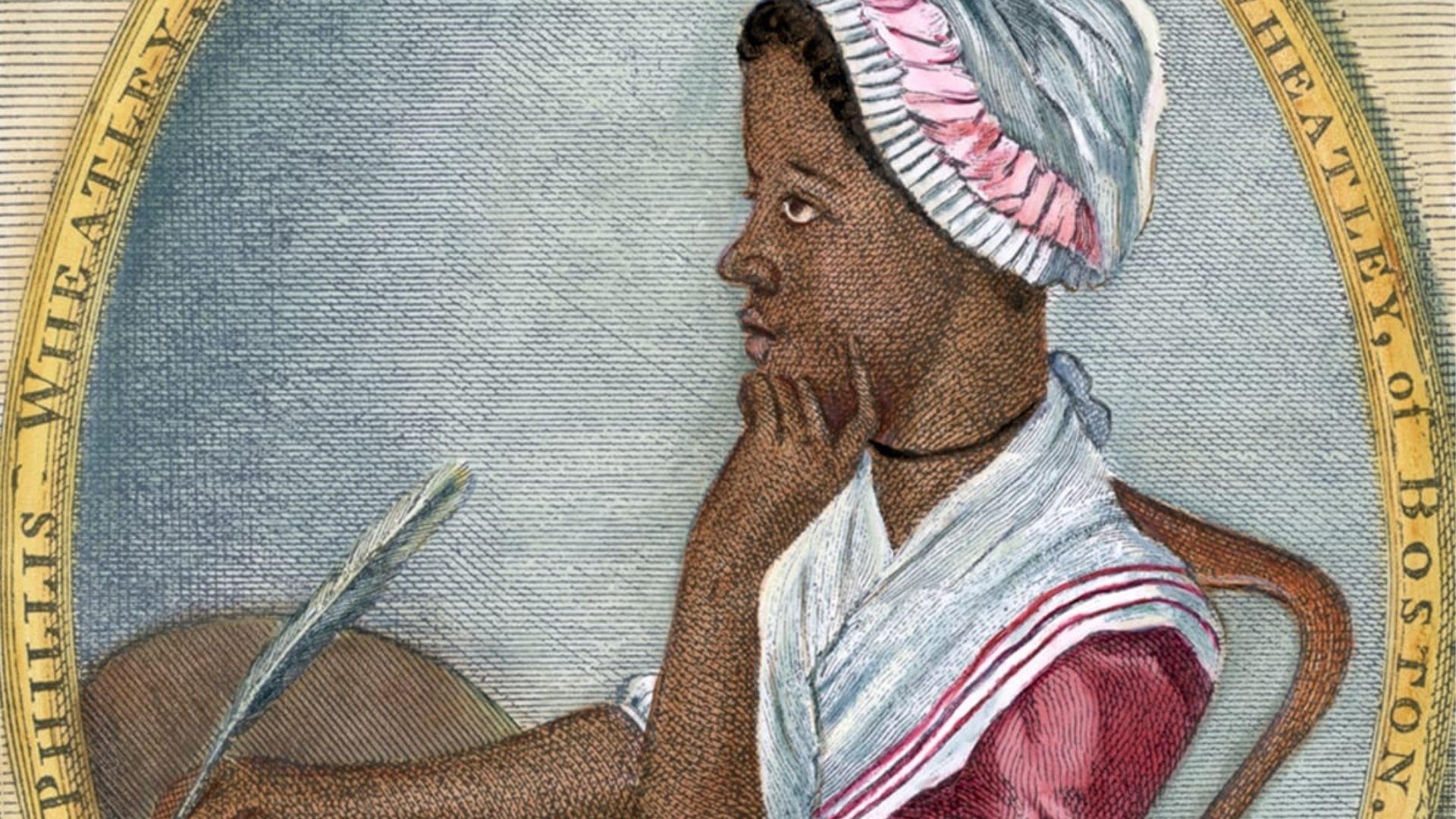An Hymn To The Morning Poem by Phillis Wheatley
An Hymn To The Morning
ATTEND my lays, ye ever honour'd nine,
Assist my labours, and my strains refine;
In smoothest numbers pour the notes along,
For bright Aurora now demands my song.
Aurora hail, and all the thousand dies,
Which deck thy progress through the vaulted skies:
The morn awakes, and wide extends her rays,
On ev'ry leaf the gentle zephyr plays;
Harmonious lays the feather'd race resume,
Dart the bright eye, and shake the painted plume.
Ye shady groves, your verdant gloom display
To shield your poet from the burning day:
Calliope awake the sacred lyre,
While thy fair sisters fan the pleasing fire:
The bow'rs, the gales, the variegated skies
In all their pleasures in my bosom rise.
See in the east th' illustrious king of day!
His rising radiance drives the shades away--
But Oh! I feel his fervid beams too strong,
And scarce begun, concludes th' abortive song.
Wonderful mixing of the classical tradition with stream of consciousness expression.
A beautiful poem written in the classical tradition. However the muse list is varied according to historical periods and even myths were often regional with three or four different common versions. My favourite dramatist, Euripides, even added another form of drama to comedy and tragedy, tragic-comedy because he realized life was like that. There are often agreed to be three original muses, Aoide (song or voice) , Melete (practice or memory) and Calliope (epic poetry or beautiful voice) . Mnene and Arche are also mentioned. At Delphi another three muses were Nete, Meser and Hypate, the three cords of the lyre. They were also called Cephisso, Apollonis and Borysthenis at other locations. Clio, Erato and Polymia are three more from Indo-European. If we call the Ancient Greeks the Helenes as they called themselves, and remember there were three main ethnic divisions, Illyrians Achaean and Aeolian if I remember correctly and the Ionian dialect. And that they had some had trouble understanding each other in Troy, and then bring in Proto Indo-European and the theoretical Dorian Invasion of Greece, in three diachronic waves, which replaced the mother Gods, things are starting to get complicated. There was never only one invasion into Ancient Greece. The sea people, the possible Anatolian origin of the Pelasgian language, the invasions of llyrians like the Bryges. Linear A and B, later Greek dialects, and so little extant on pottery and surviving in later records, due to wars and limitations of scribal culture, means our knowledge of even varied names of muses in mythology is limited. Wheatley has read the classics well, it was obvious in her last poem. Aurora is the goddess of dawn in Roman mythology and in Latin poetry. Eos is the comparable Greek goddess and Aurora is the Latin word for dawn. An example of simple Greek Roman classical mixing. Luckily we do not need to know any of that to enjoy this wonderful poem.
what an absolutely beautiful piece of writing, this piece flows so nicely.it is very easy to read, there is no strain at all, well done
Greatest Beauty is created in this poem. TOP Marks for the great late poetess PW. Enjoyed very very much.
Well articulated and nicely embellished with poetic rhyme and rhythm. An insightful work of art..........................
While thy fair sisters fan the pleasing fire: The bow'rs, the gales, the variegated skies In all their pleasures in my bosom rise. great, great, great write great 10+++++++++++
Brilliant. Phillis Wheatley writes so majestically. I never tire reading her perfect prose.
So am I, Shaun. Thank you for your great response on her poem
This poem has not been translated into any other language yet.
I would like to translate this poem
it ok i guess but i diddn't get half of the words